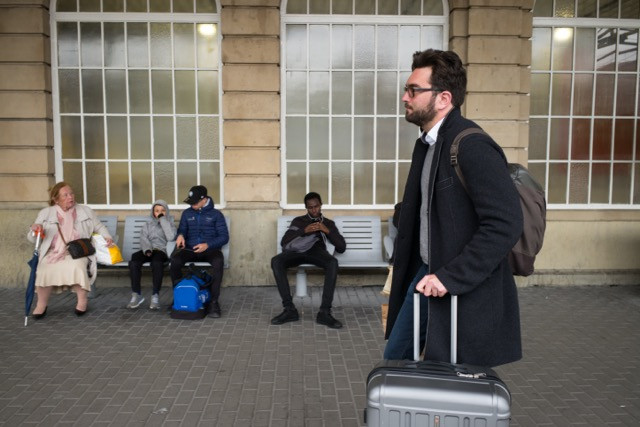Few local residents would dispute the fact that we are living in a time of great change, with a dramatic increase of radicalisation in political life in several countries around the world.
After the Brexit referendum and the election of Donald Trump, Daniel Roeder, a lawyer, and his wife, Sabine, decided to organise a small rally in their home town of Frankfurt against nationalism and populism. They also wanted to promote the success the European project has achieved over the last 60 years. The project was called “Pulse of Europe”.
What started as a rally of 200 people has now become a European movement promoting, above all else, the peace that has been achieved in our continent. Delano spoke with Jonathan Ponchon, who is responsible for starting the organisation’s Luxembourg chapter.
“Above all, Pulse of Europe wants to change the public disclosure about Europe,” said Ponchon. “We want to send out positive pro-European energy and protect the European project, values and its influences.”
Pulse of Europe is not a political movement and has no allegiance to any rhetoric. Its belief is that the future of Europe is threatened if member states violate fundamental European values, such as freedom of the press, protection of minorities, freedom of science and the rule of law.
Much work to be done
“We hope that the election of Trump and Brexit was a wake-up call for continental Europe,” he said. So far, the favourable outcome in the elections in the Netherlands and France seems to have bucked this nationalistic trend, but Ponchon is keen to highlight that it is not enough to “glorify” the recent past. “Reforms must be done in Europe, and we demand that European politicians focus on the European project as a whole, not just about national and electoral preoccupations.”
Whilst the crucial French presidential election may be over, the German elections are still due to take place later this year. Nationalists may not be as strong in Germany as in other countries, but Angela Merkel has faced some stark criticism over her handling of the refugee crisis.
“We will continue to organise gatherings every first Sunday of the month at place Clairefontaine,” stated Ponchon. “The next meetings will be on 4 June and 2 July, and everyone is welcome to join. We also keep people updated on our Facebook page and the Pulse of Europe website, which is available in several languages.”
“Supporting the campaign is easy,” he said. “You can come to a public gathering at place Clairefontaine, you can volunteer to help, organise your own gathering or just simply spread the message to friends, colleagues and family.”
“Everyone is responsible for the way we speak out about Europe,” added Ponchon. “We live in times in which we can no longer be neutral or quiet about populism and nationalist movements.”
This article was first published in the June 2017 issue of Delano magazine. Be the first to read Delano articles on paper before they’re posted online, plus read exclusive features and interviews that only appear in the print edition, by subscribing online.
